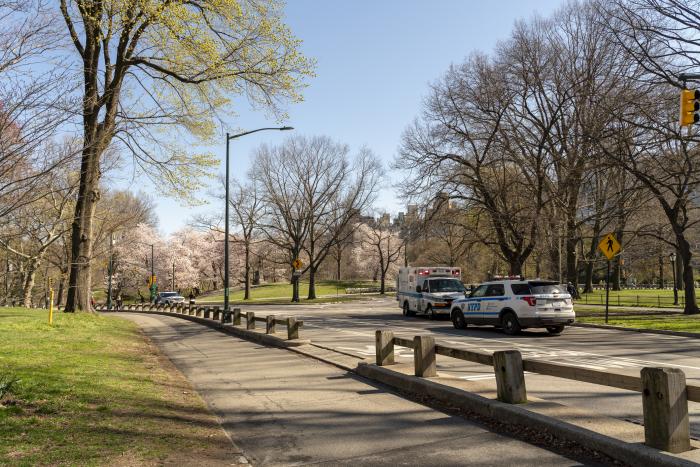UMD Study to Evaluate Six Maryland Counties’ Law Enforcement Diversion Programs
The 400K Effort Will Reveal How Programs are Getting Individuals in Need Care—Not Incarceration
The Governor’s Office of Crime Prevention and Policy (GOCPP) has spent the last five years helping to provide funding to Maryland counties that have expressed interest in helping people who may be struggling with substance use or mental health disorders get connected to care, rather than incarceration for low-level offenses.
“As we’ve been experiencing this opioid epidemic, law enforcement often are the first people to arrive on the scene. Maryland has been trying out innovative approaches like ‘law enforcement assisted diversion’ to best meet this challenge, but what that means to one jurisdiction is likely to vary from another, and we don’t really know what works,” explained Bianca Bersani, an associate professor in the Department of Criminology and Criminal Justice and the director of the Maryland Crime and Research Innovation Center (MCRIC).
MCRIC and the Center for Substance Use, Addiction, and Health Research (CESAR) were recently awarded $400,000 from the GOCPP to work with stakeholders in Allegany, Anne Arundel, Harford, Calvert, Saint Mary’s and Carroll counties to try to find out what those diversion programs are doing, and which ones are performing particularly well.
This is MCRIC and CESAR’s second collaboration for the Governor’s Office; their first involved writing a strategic plan for the Behavioral Health and Public Safety Center of Excellence, a hub for the state to more efficiently and effectively promote access to behavioral health care and reduce engagement with the criminal justice system.
The MCRIC team of researchers—which includes Research Data Analyst Pritesh Jain and Project Manager Jocelyn Evens—will take the lead on collecting and analyzing the data the counties’ law enforcement and health departments have collected on their programs and participants to date.
“This project holds a lot of potential. It’s really important to have law enforcement and health department datasets communicate to get a more complete picture of the prevalence and challenges facing individuals in need, and service providers. But these data connections are pretty hard to make because of confidentiality concerns and a desire to not inadvertently criminalize past behaviors or stigmatize the individuals, creating barriers to critical physical and mental health resources and other opportunities,” said Bersani. “We are a valuable resource in this space in that we can bring the departments’ data together in a way that maintains confidentiality.”
Erin Artigiani, CESAR’s Deputy Director of Policy, and Ebonie Massey, CESAR faculty specialist, will conduct qualitative interviews with staff at the diversion programs in each county and other key stakeholders.
“The interviews are very important to conduct because they will give us front line information we haven’t had access to before. You really can't know how things are working without getting the perspectives of the people who are most involved,” she said.
Interviews and data collection will begin this fall, and the study will officially conclude in the fall of 2025 with a report on findings, plus a list of best practices for the Maryland counties who are looking to implement a successful diversion program in their area.
The researchers say that that guidance to other jurisdictions will be “a really important piece” of their work, but they hope the impact of the study extends even further.
“I hope the study will also encourage a deeper understanding of the value of diversion programs, and increase trust between the people who are coming into contact with the law enforcement agencies and their ability to access the kinds of services and assistance they need,” said Artigiani.
Learn more about the Maryland Crime and Research Innovation Center
Learn more about the Center for Substance Use, Addiction, and Health Research
Photo of an ambulance and police car parked along the side of a road is by iStock
Published on Tue, Jul 23, 2024 - 3:08PM




